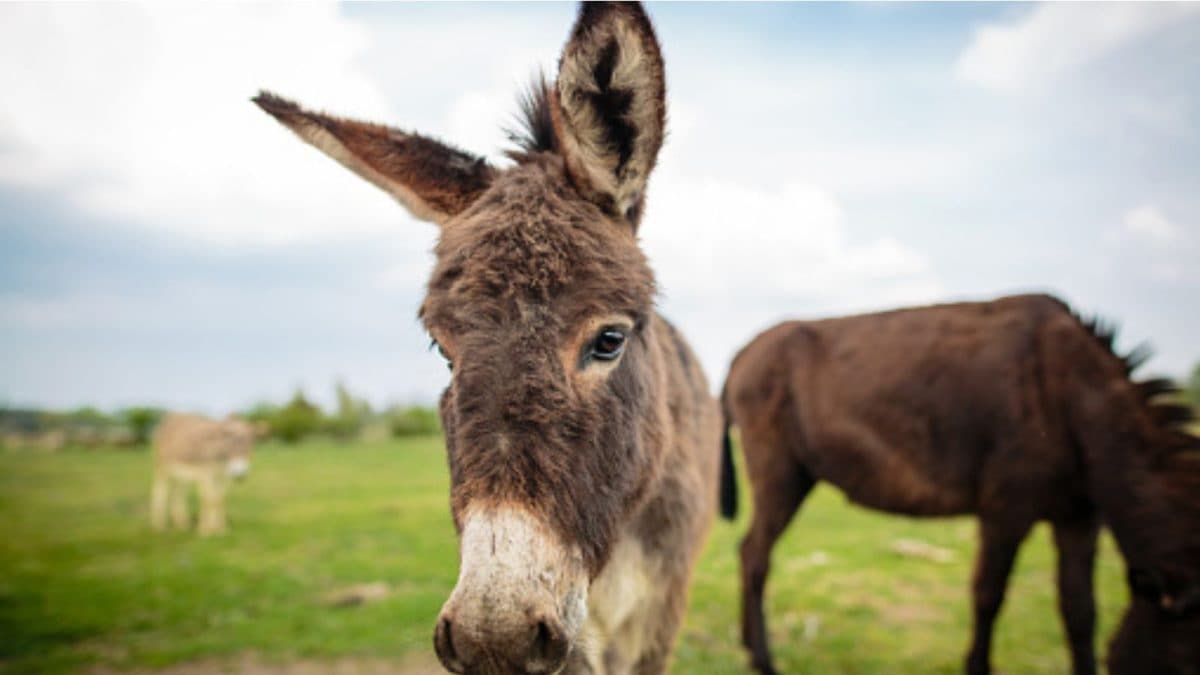Last Updated:
For decades, families in rural India have given donkey milk to infants. Many parents see it as a natural immunity booster, while others turn to it when children fall sick

While donkey milk may offer certain nutrients, medical experts stress that it cannot replace breast milk, which remains the most important food for infants. (Getty Images)
In several towns across South India, it is not unusual to spot men unloading donkeys from a truck and selling small bottles of donkey milk at steep prices. Recently, a trader named Gangaram from Telangana’s Mancherial district was seen moving through places like Anantapur, Tirupati, Chittoor, and Madanapalle with nearly 30 donkeys in tow.
Recommended Stories
For a week or more in each town, he sells the milk in tiny 10 ml cans — each costing around Rs 100. On a good day, his family earns between Rs 500 and Rs 3,000 from this business, which he says has been passed down for generations.
The demand for donkey milk is not new. For decades, families — particularly in rural India — have given small quantities to infants and children. The practice is rooted in cultural beliefs and traditional medicine. Many parents see it as a natural immunity booster, while others turn to it when children fall sick with coughs, colds, or digestive troubles.
What explains this trust in donkey milk? Modern studies suggest some reasons. Its nutritional profile is said to be closer to human breast milk than cow’s milk. It contains lower levels of allergenic proteins, making it easier to digest for some children. It is also rich in vitamin C, which has antimicrobial properties, and contains probiotics that are believed to support gut health. Because of these qualities, donkey milk is often promoted as an alternative for children allergic to cow’s milk proteins.
Beyond nutrition, its reputation has grown through word-of-mouth and traditional wisdom. Families buy it not just for children’s health but also as a natural remedy for seasonal infections or respiratory issues. Some even claim cosmetic benefits, noting that donkey milk has been used in skincare since ancient times, with legends saying Cleopatra bathed in it for glowing skin.
However, medical experts continue to urge caution. While donkey milk may offer certain nutrients, they stress that it cannot replace breast milk, which remains the most important food for infants. Pediatricians advise that parents consult a doctor before introducing donkey milk to babies or young children, since unregulated consumption carries risks.
For now, the practice survives on belief, tradition, and the willingness of families to pay a high price for a few millilitres. And as traders like Gangaram travel from town to town with their herds, donkey milk continues to stir both curiosity and debate — somewhere between culture, commerce, and questions of health.
About the Author
The News Desk is a team of passionate editors and writers who break and analyse the most important events unfolding in India and abroad. From live updates to exclusive reports to in-depth explainers, the Desk d…Read More
The News Desk is a team of passionate editors and writers who break and analyse the most important events unfolding in India and abroad. From live updates to exclusive reports to in-depth explainers, the Desk d… Read More
Anantapur, India, India
October 01, 2025, 12:55 IST
Loading comments…
Scan the QR code to download the News18 app and enjoy a seamless news experience anytime, anywhere



